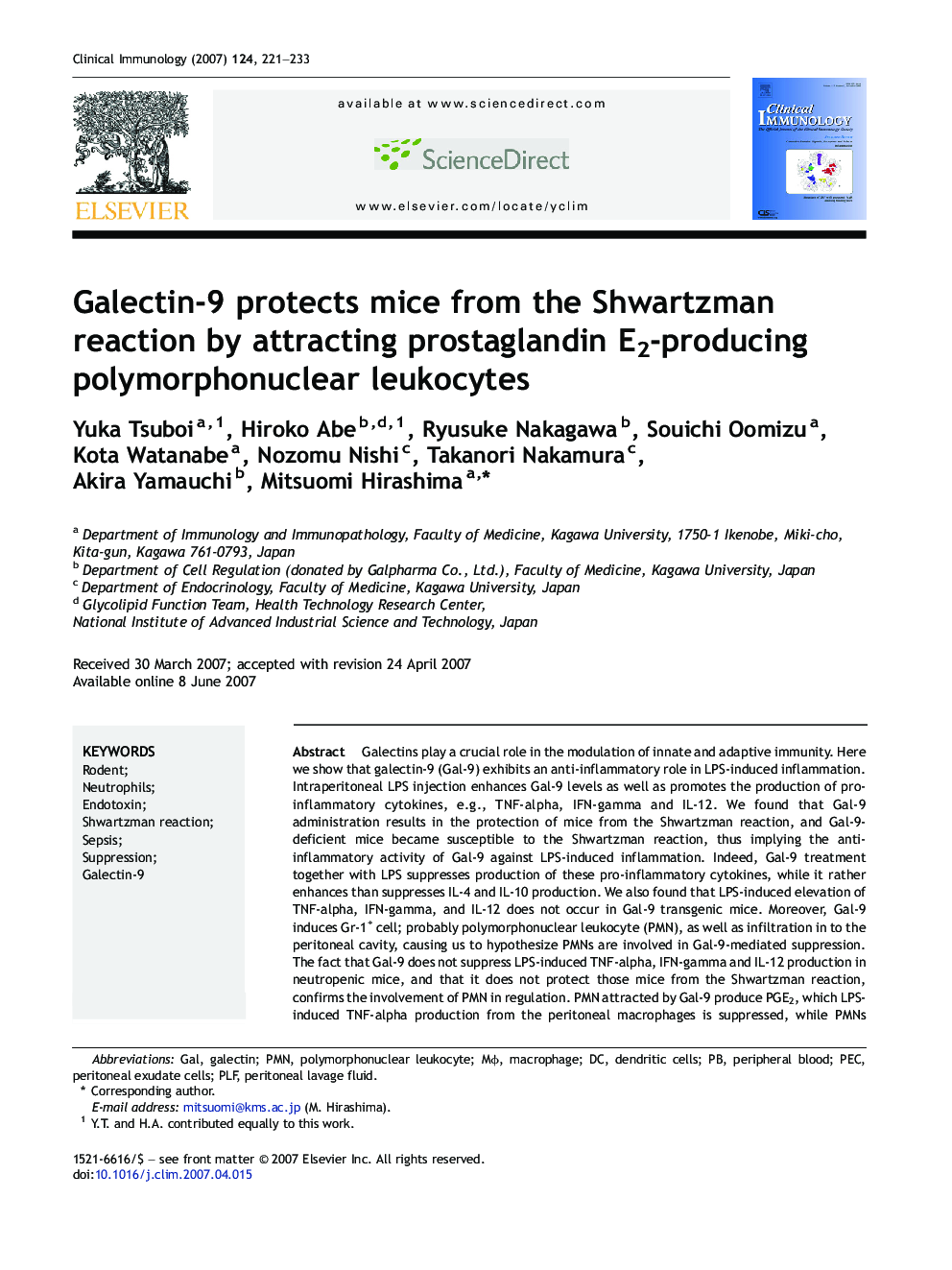| Article ID | Journal | Published Year | Pages | File Type |
|---|---|---|---|---|
| 3258106 | Clinical Immunology | 2007 | 13 Pages |
Galectins play a crucial role in the modulation of innate and adaptive immunity. Here we show that galectin-9 (Gal-9) exhibits an anti-inflammatory role in LPS-induced inflammation. Intraperitoneal LPS injection enhances Gal-9 levels as well as promotes the production of pro-inflammatory cytokines, e.g., TNF-alpha, IFN-gamma and IL-12. We found that Gal-9 administration results in the protection of mice from the Shwartzman reaction, and Gal-9-deficient mice became susceptible to the Shwartzman reaction, thus implying the anti-inflammatory activity of Gal-9 against LPS-induced inflammation. Indeed, Gal-9 treatment together with LPS suppresses production of these pro-inflammatory cytokines, while it rather enhances than suppresses IL-4 and IL-10 production. We also found that LPS-induced elevation of TNF-alpha, IFN-gamma, and IL-12 does not occur in Gal-9 transgenic mice. Moreover, Gal-9 induces Gr-1+ cell; probably polymorphonuclear leukocyte (PMN), as well as infiltration in to the peritoneal cavity, causing us to hypothesize PMNs are involved in Gal-9-mediated suppression. The fact that Gal-9 does not suppress LPS-induced TNF-alpha, IFN-gamma and IL-12 production in neutropenic mice, and that it does not protect those mice from the Shwartzman reaction, confirms the involvement of PMN in regulation. PMN attracted by Gal-9 produce PGE2, which LPS-induced TNF-alpha production from the peritoneal macrophages is suppressed, while PMNs attracted by casein produce less PGE2 and fail to suppress LPS-induced TNF-alpha production. Our data suggest that Gal-9 regulates LPS-induced inflammation and protects mice from the Shwartzman reaction by attracting PGE2-producing PMN.
